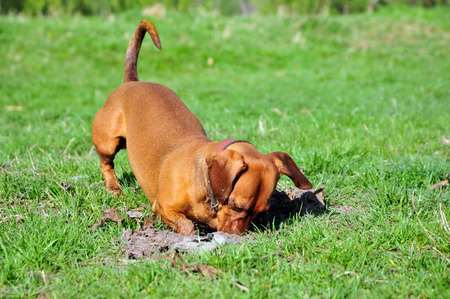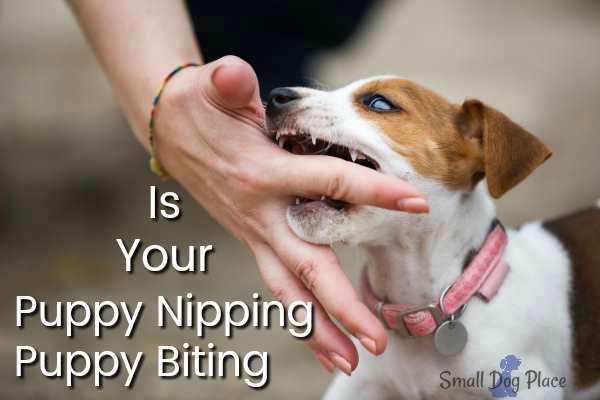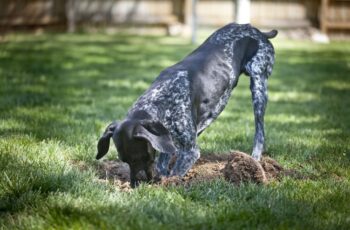Bored Dog? by Robert Thomas |Published 07-21-2022
Small dogs are often touted as ideal for small spaces or busy owners, since they don’t need as much exercise as, say, a large border collie or Labrador.
However, many small dogs are working breeds, like terriers, who require a lot of mental stimulation.
The recent designer dog boom has also produced breeds like the miniature husky, a seemingly pocket-sized pooch that is also descended from dogs trained to run for miles a day while pulling heavy weights.

Complicating this, some owners may be reluctant to increase their dog’s exercise load because of concerns about congenital hip dysplasia and other diseases.
A combination of these factors can lead to a problem that’s worse than it sounds – doggy boredom. Nothing turns a sweet, well-behaved dog into a destructive, clingy menace more quickly than under-stimulation.
8 Signs of a Bored Dog
In this article, you’ll learn to recognize some of the signs of a bored dog, and how to alleviate the problem before it gets out of hand.
1. Destructive Behavior
This can be anything from chewing on furniture, getting into hampers or cupboards they previously left alone, or even chewing on themselves – your dog is looking for anything to occupy their time.
If your dog has a favorite target for their destructive outburst, try to block access to it, and if they’re chewing on their paws or tails, they may need to see a vet. The best solution to the root problem, though, is interactive toys and puzzles.
These will keep your dog occupied and keep their focus away from the couch leg or your neatly folded tea towels.
2. Bored Dogs Often Pace
A dog who is constantly pacing back and forth, even when they just went out, is probably looking for a way to burn off excess energy.
A pacing dog needs more exercise, but there are ways to get it without damaging their hips. Find a place where your dog can learn to swim, or even consider a water treadmill, which will allow them to walk without putting too much strain on their joints.
3. Excessive whining or barking

All dogs will whine and bark a bit, though how much will vary by breed. If your dog is constantly barking or whining, though, even when all their immediate needs – food, water, going out to pee – have been met, they may be expressing boredom, barking to ask for attention and stimulation.
A good way to give them both of these things is by continuing to work on training. Even if they’ve already mastered the basics, working on tricks and skills for fifteen minutes a day will give them attention and mental stimulation.
4. Digging

A dog who digs incessantly when you do let them out may be looking to release pent up energy and frustration.
If they’re a terrier or other working, burrowing breed, they may also be mirroring the work they’ve seen you do in the garden.
Find a way to give this dog a job or a sense of accomplishment – this could be increased training, puzzle toys, or even teaching them to fetch small items from around the house for you.
5. Uncharacteristic aggression

If you have other dogs or animals in the house, or meet them while out and about, and your dog becomes insistent, nippy, or starts harassing the other animal, it may be a sign that their instinct toward socialization is curdling with the frustration of being constantly under-stimulated or frequently alone.
Enroll this dog in a puppy play group or even a training or socialization class – even if they’re an older dog or have done that training before. The important thing is to get them safely around other dogs, so they can get the social interaction they’re craving.
6. Biting

A dog who is constantly nipping at you or tugging on your clothes, especially if they’re an older dog who had already outgrown their puppy piranha phase, is probably looking for attention and play to address their boredom.
This dog is asking for more from their owner, and it’s easy – and fun – to give them what they want: Play with them!
Take some time out of your day, in addition to your usual exercise time, to play tug-of-war or other games with your pup – they’ll love it, and you probably will too.
7. Clinginess

This can manifest itself in a number of ways, such as the barking and biting mentioned above, constantly getting right into your face, refusing to leave your side, and generally forcing themselves into your presence at all times.
This is a tricky behavior to diagnose, because it may be caused by boredom, but it can also be a consequence of separation anxiety.
Watch your dog’s other behaviors or speak with a vet to determine what’s really going on here, but if it is boredom, you can help alleviate it by incorporating your dog more into your daily routine and giving them “tasks” to help them feel like part of the family.
8. Listlessness

A listless dog might lie around all the time and not show any interest in things they used to enjoy.
Food is a good way to motivate a checked-out dog into engaging again, but food puzzles or reward-based toys, like kongs, will get your dog going again.
Boredom is extremely difficult for dogs to cope with, but with help from their owners, it can be managed and contained without sacrificing the dog’s emotional well-being or physical health – or the owner’s house.
Last Words About Your Bored Dog
A bored dog is not necessarily a good dog. Boredom can manifest in many different ways and look differently in distinct breeds. Don’t wait until your dog destroys something precious to you, bites someone, or digs a hole in your sofa cushion.
The best way to prevent a bored dog from taking matters into his own hands (I mean paws) is to take a proactive approach.
This means providing enough exercise both physical and mentally to keep him happy. Dogs love your attention and there are few that will give up the opportunity to play with you.
Don’t stop with exercise and play, rather invest some quality time training your dog. Training commands and tricks can be very exhausting to dogs which means they will be much more likely to rest afterwards.
If individual training is not for you, consider an obedience class or even doggie daycare. If nothing else, work on your dog’s socialization skills.
Invest in a few food puzzles or Kong toys which will keep your dog happy for extended periods of time.
If all else fails, talk to your veterinarian to rule out any underlying medical issues.
Your dog doesn’t need to be bored. He/she will appreciate your help and you will benefit in the long run.
Bored Dog?
Pin for Future Reference

Bored Dog Author Bio
Robert Thomas, founder of Marvelous Dogs has spent decades working with and training dogs. He has a passion for working dogs and spends most of his spare time studying, reading and learning about their behavior and welfare. Currently, he enjoys trail running and agility work with his pet Labrador.
Does This Article Deserve Your Thumbs Up?
We always appreciate your support and encouragement. Your thumbs up means so much to us. Please like this article.
If you find this page or any page on Small Dog Place Helpful, or Useful in anyway, I’d love it if you would click the small heart found on the bottom right of each page.
You can also share or bookmark this page — just click on the:
Your second block of text…

Free Monthly Newsletter
Sign Up for Our Free Newsletter and get our Free Gift to You.
my E-book, The Top 10 Mistakes People Make When Choosing a Dog (and how to avoid them)


